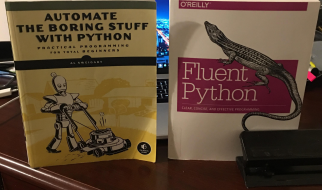This article has been made free for everyone, thanks to Medium Members. For more information on the novel coronavirus and Covid-19, visit cdc.gov.
There?s nothing like a new and poorly understood virus to bring out the hypochondriac in all of us
 Photo: PeopleImages/E+/Getty Images
Photo: PeopleImages/E+/Getty Images
 Peter Gulick hasn?t been feeling 100% for quite some time. You can hear it in his voice. ?I?ve got congestion,? he says in a phone interview. ?I?m clearing my throat a lot. I?m bringing up phlegm. I have a cough, but the cough is very infrequent.?
Peter Gulick hasn?t been feeling 100% for quite some time. You can hear it in his voice. ?I?ve got congestion,? he says in a phone interview. ?I?m clearing my throat a lot. I?m bringing up phlegm. I have a cough, but the cough is very infrequent.?
Dr. Gulick, a practicing oncologist and infectious-disease specialist at Michigan State University?s College of Osteopathic Medicine, knows enough not to worry about his symptoms.
He does not have the key symptoms of Covid-19: ?I don?t have fever,? he says. ?I don?t feel short of breath.? More likely than not, he says, it?s probably a minor cold, or simply a respiratory reaction to rapidly changing temperatures this time of year.
?You?ve got to look at the whole picture, not just one symptom and then panic.?
Gulick is careful to note there have been reports of people having flu-like symptoms that turn out to involve coronavirus infections. And while a runny nose alone is unlikely to be a sign of Covid-19, it?s too early to rule the possibility out entirely. In fact, while children tend to have milder Covid-19 symptoms than adults, early data suggest kids may experience fever, runny nose, and cough, according to Harvard Medical School. The only way to know for sure is through testing.
So Gulick understands why people may be afraid of their own sniffles these days. Still, a tickle in your throat ?is nothing to panic about,? he says. ?You?ve got to look at the whole picture, not just one symptom and then panic.?
There?s nothing like a pandemic from a new and poorly understood virus to bring out the hypochondriac in all of us. It?s normal and natural, psychologists say.
Stalked by lions
We humans are prone to irrational fear of things that are very unlikely to cause our demise, be it sharks, snakes, airplanes, or disease. The innate tendency to fear the unknown helps keep us alive. It can also cause unproductive anxiety.
?This comes down to very basic human behaviors around survival and is related to the way we evolved over time,? explains Jed Magen, a psychiatrist and associate professor at Michigan State University. ?As we were developing from earlier human species, being alert for dangers in the environment had survival value. If there is a rustle in the tall grass, it probably is just the wind, but if you don?t get very alert and perhaps run when that happens, if it is really a lion, you might die.?
That fact of life for ancestral eons has left us alert to any danger, especially new and unfamiliar threats like coronavirus.
The stress of our utterly upended lives right now could, on its own, cause general fatigue, malaise or even some tightness in the chest.
The challenge, Magen tells Elemental, is to not exaggerate danger signs. Excessive anxiety about a rustle in the grass worked well back in the day, but it?s less useful with a virus that you can?t see and a disease can?t do much about.
?So it is not surprising that many people would, like someone who has hypochondria, over-interpret signs and feel like they may have a disease, in this case Covid-19,? Magen says.
Soothed by science
A typical cold often starts with a sore throat, followed by sneezing, congestion, and a runny nose. Unless it worsens notably, it usually stays in the upper respiratory system. Influenza will often begin with body aches and chills, a fever, then often a headache and sometimes a cough, and in some cases cold-like symptoms, too.
Covid-19 often causes few symptoms. Some people get infected, and spread the disease, without even realizing they are sick. But in moderate to severe cases, there are three common symptoms that usually show up in a typical progression:
?The fever is there, then the cough, then the shortness of breath,? Gulick says.
Other symptoms, including muscle aches and pains, are less common with Covid-19, even rare, and may or may not occur even in severe cases. Gastrointestinal issues like vomiting or diarrhea are also uncommon, except in cases where the disease progresses to a severe stage.
?Covid-19 tends to get more into the lungs? than a cold or flu, Gulick explains. The immune system reacts, causing inflammation of lung tissue that forces the coughing. ?And then the shortness of breath is what really starts to indicate you?ve got something serious going on.?
Dubovsky?s first piece of advice to anyone struggling with anxiety or worried about how they feel physically right now: ?Shut off the 24-hour news.?
Anyone who has a fever right now should take it very seriously. Whether it?s a sign of influenza or Covid-19 or something else, it potentially indicates some infectious disease that you don?t want to share, and which you want to, at the very least, monitor closely and consult a health-care provider about.
Meanwhile, the stress of our utterly upended lives right now could, on its own, cause general fatigue, malaise, or even some tightness in the chest.
?Tightness of the chest, the kind of thing you would expect with stress, is not a characteristic symptom? of Covid-19, says Barry Bloom, PhD, an immunologist and infectious-disease expert at Harvard T.H. Chan School of Public Health. The breathing difficulty brought on by a coronavirus infection is a distinct feeling of not being able to get enough air in, Bloom says.
The hypochondriac in all of us
Hypochondriasis, what we typically call hypochondria, can be a serious illness, in which case it consists of ?a preoccupation with the idea of being ill and spending so much of your time and effort looking for a diagnosis and treatment that you can?t function normally,? explains Dr. Steven Dubovsky, chair of the department of psychiatry in the Jacobs School of Medicine and Biomedical Sciences at the University at Buffalo.
?In more minor forms, hypochondriacal preoccupations are common in all of us when we feel stressed,? Dubovsky says. ?Everyone, if they don?t feel well or they?re under stress, becomes a little self-preoccupied and starts worrying about their health.? Especially now, with the barrage of news about outbreaks and deaths around the globe. ?When you feel like you?re in danger, or you?re stressed or anxious, you?re going to naturally be more aware of minor bodily dysfunction that happens to us all the time.?
Part of the problem is we?re suckers for anecdotes. Scientists have established that the risk of serious illness and death from Covid-19 goes up with age. But if you heard the news that a baby and a teen died of Covid-19 in China, you might then generalize to the notion that babies get the coronavirus. ?No,? Dubovsky says. ?One baby was reported who had it, out of thousands and thousands of people who have this illness.?
Dubovsky?s first piece of advice to anyone struggling with anxiety or worried about how they feel physically right now: ?Shut off the 24-hour news.?
Then step back and seek some perspective. Dubovsky thinks back to this time last year. Lots of people didn?t feel good. Some had a fever. Some had a cough or sniffles. Then, as now, it was cold and flu season, with allergy season emerging. ?Everybody was sick with something,? he says. We just didn?t pay attention to it because we hadn?t been told to fear something new, mysterious, and deadly.
For peace of mind, and for physical well-being, it?s crucial to take the precautions health experts are encouraging, from social distancing to proper hand-washing, Dubovsky says.
?If you have body aches or chills, take your temperature, as those can be a sign of fever,? Gulick suggests. He stresses awareness over panic, and the need for more and faster testing for Covid-19. People should not ignore symptoms that are unlikely to indicate the disease, he says, ?but they don?t have to panic and think the end of the world is here because they?ve got diarrhea or nausea.?


